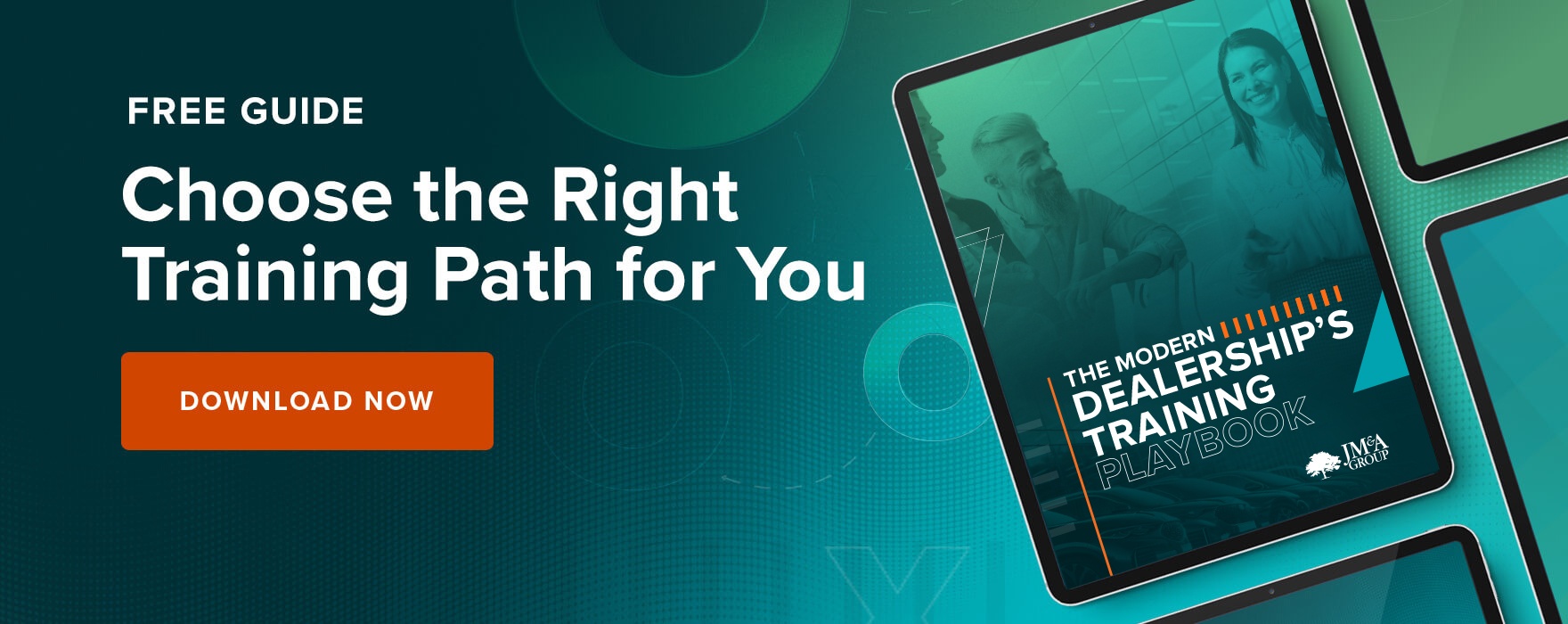Car Sales Tips: What You Can Do to Improve Your Sales Numbers
By Amanda Pliskow | Updated: August 16, 2023
Let’s face it, the auto retail industry is changing and many dealerships are having to get creative to meet their sales quotas and secure long-term profitability.
Even before the unpredictable shift in our industry caused by COVID-19, U.S. car sales were down 5.8% in December 2019 compared to the same month in 2018, while full-year sales fell 1.3%. We all know what has happened since..
The reasons for the decline are complex and multi-faceted, owed in part to shifting consumer preferences about vehicles and the overall car buying experience. Some of the main contributors to the decline in new car sales, according to the Car Buyer Journey Study from Cox Automotive, include:
- Increased competition from online retailers
- The growing popularity of ride-sharing services
- Consumers’ preference for used vehicles
- Higher new car prices and loan rates
- Tightening EPA regulations
To get out in front of these challenges, many car dealerships have started to rethink their sales processes with a focus on personalized shopping experiences. Taking a consumer-oriented approach, as many of the most successful dealerships do, requires ongoing learning as customer preferences continue to shift. To help your dealership adjust to modern car buying audiences, we’ve put together a list of car sales tips every retailer should practice.
BONUS - all these practices can be applied to both the in-person and virtual sales process.
Ask qualifying questions
The first step to selling a car is getting to know the needs, preferences and budgetary limitations of your customers. This initial conversation is the basis for the relationship building that is crucial for making the sale and for retaining customers in the long term.
Car buyers who are happy with their shopping experience and trust your dealership personnel are more likely to purchase F&I products, return to your service drive for vehicle repairs and maintenance, and recommend your dealership to friends and family. But as with any relationship, first impressions are everything.
One of the best ways to gauge customers’ individual needs and preferences is to ask plenty of qualifying questions when they stop by your dealership in person. Today’s in-person shoppers visit an average of 2.3 dealerships before making a purchase, meaning a single interaction can make or break a sale. Here are some key questions your sales teams should ask early on in the conversation with a new customer:
- What brings you in today?
- Are there any specific vehicle models you’re interested in?
- What features are you looking for in a new or used vehicle?
- What do you dislike about your current vehicle?
- What does your timeline look like?
- Are you planning to pay for the vehicle upfront or do you need financing?
- Have you ever financed a vehicle before? If so, what were your monthly payments like?
Of course, every sales conversation is different. Many of these questions may be answered naturally while speaking with car buyers about what they're looking for and how much they’re willing to pay. That said, it’s important to avoid grilling consumers about their needs and finances, as aggressive sales pitches are a huge turnoff.
After getting to know customers on a more personal level, your salespeople will be able to hone in on the exact vehicles and F&I products that match their preferences. This, in turn, can help improve your car sales numbers and cut down on the time customers spend sitting at your dealership. According to Cox Automotive, consumers who spend an average of three or more hours have a worse overall dealership experience and are often less likely to follow through with their purchases. The more you can do to streamline the customer’s car buying journey, the better.
Personalize your sales processes
As an automotive car salesman, natural progression to asking those clarifying questions is the ability to personalize the process to each unique customer. In practice, personalization is all about adjusting your services to meet each customer’s specific needs, rather than focusing on broad sales tactics. While it’s true that buying trends can help your sales team understand the preferences of different customer demographics, it’s crucial to treat each visitor as an individual.
According to research from Accenture, around 43% of U.S. consumers are more likely to purchase goods and services from companies that personalize their experience. This includes things like offering product recommendations, special discounts and other incentives for customer loyalty. There is, however, a more direct and impactful way to build relationships with potential customers: focus on the person, not the product.
Since you’ve started off strong by asking clarifying questions, now it’s time to get to know the person behind the purchase. Why do they need a new vehicle? What will they be using it for? How would a new or used car improve their lives? These types of people-focused questions can reveal the motives behind customers’ purchase decisions and help your sales team personalize every aspect of the buyer’s journey.
Leverage CRM tools to track leads
In many cases, car buyers are not ready to finalize a purchase during their first visit to your dealership. On average, consumers spend around 96 days in the market for a new vehicle, down from 118 days in 2017. While car shoppers are spending less time overall hunting for the best possible deal, they also have more options available and more access to information than ever before.
To help collect, manage and organize customer data, many dealerships have integrated Customer Relationship Management (CRM) tools into their workflows. This powerful software allows car dealers to build more productive relationships with buyers and prospects by storing key information in a secure, centralized format.
Using a CRM, your salespeople can quickly pull up customer records, contact information and purchase histories to better understand buyers’ individual needs.
CRM tools also make it easy to follow up on sales leads, generate actionable insights, personalize the shopping experience and increase conversions. By creating a detailed profile for prospective car buyers, your sales team can identify what vehicle models or accessories a customer may be interested in, and your F&I staff can identify what products customers are looking for or could benefit from. This improved accuracy can streamline your sales conversations and open up upsell opportunities, which may help increase new car sales revenue.
Of course, there is a lot of overlap between personalization and dealership technology. For example, using a CRM platform can allow your staff to build more accurate and compelling customer profiles that can guide future sales conversations. Automated email marketing can also help individualize your consumer-facing communications and introduce more variety into your marketing efforts.
Establish a strong online presence
Search engines and social media platforms now play a significant role in consumers’ buying experiences. Research from Cox Automotive found that car buyers spend an average of 14 hours researching and shopping online before ever visiting a dealership in person. Without a strong and active online presence, you could be missing out on easy sales and opportunities to build lasting customer relationships.
The study also found that close to 80% of shoppers visit at least two websites during their independent research - 65% start their search on a third-party website, while 32% end up on a dealership’s page. These findings demonstrate the importance of your website as an active sales tool. Offering consumers a simple means of collecting information on vehicle features, prices and financing options can help build trust early in the buying process.
That said, your website must be informative, engaging and effective at driving sales leads to have an impact on your bottom line. Your content should be consistently updated to reflect the most accurate information about your dealership and vehicle inventory. It’s also important to optimize your web pages for mobile users to ensure all visitors have a positive experience browsing your site. Alongside user-friendly design and informative content, your website should also offer:
- Comprehensive vehicle pages with photos
- Real-time pricing information
- Educational shopping guides
- Breakdowns of F&I products
The goal of website optimization is to make it easy for online shoppers to locate your dealership, browse your inventory and start the purchase process. While it’s true that younger consumers are more open to online car buying, the majority of shoppers (81%) still prefer to purchase or lease in person. Ultimately, your website should function as a stepping stone in the buyer’s journey and encourage customers to visit your dealership in person.
Prioritize sales training
Consumer preferences are constantly changing, which can make it difficult to keep your car sales tactics relevant and impactful. In addition to new hire training, dealerships should offer upskilling and professional development opportunities that encourage employees to grow. Business training, in particular, can provide an inside look at a wide range of selling fundamentals, including:
- Digital retail and sales techniques
- The psychology behind high-end purchases
- How to conduct retail presentations
- The basics of sales conversions
Alongside sales training, you should also provide your staff with regular refresher courses on F&I products, loan and lease offerings, and standard maintenance contracts. This can help encourage your sales team to introduce F&I and Fixed Ops packages earlier in the sales conversation. It can also give your sales team a leg up when negotiating with high-intent shoppers who are ready to make a purchase.
Summary
Every sale starts with a conversation - knowing how to communicate with diverse audiences is a basic requirement, as are interpersonal and relationship-building skills. This accounts for why some dealerships have started prioritizing soft skills in their hiring processes. While it’s relatively easy to teach a new salesperson how to use a CRM or fill out a purchase contract, improving their interpersonal abilities isn’t always straightforward.
Generally speaking, dealerships either create their own in-house training programs, work with a third-party provider, or some combination of both. Partnering with a professional training company can not only give you access to high-quality content and the latest trends in auto retailing, it can also help improve learner retention.







